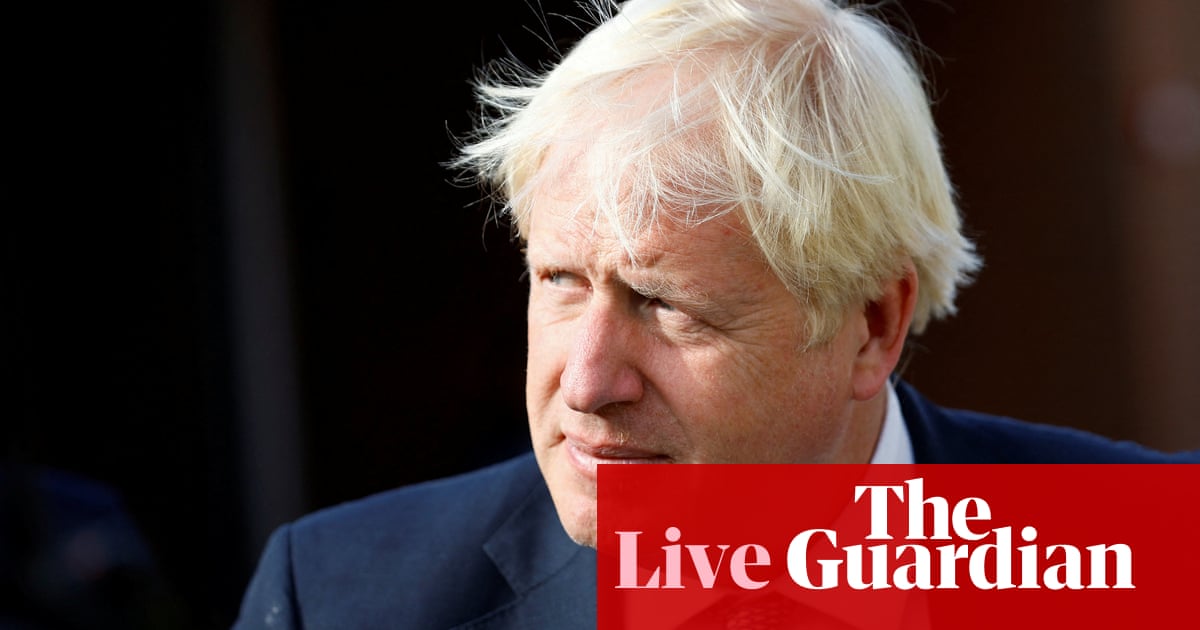
A public inquiry into Covid should be launched immediately, a senior retired judge has said with a warning that if it does not report back for four or five years “it ceases to form a useful function”.
Sir Robert Owen, who chaired the public inquiry into the death of Alexander Litvinenko and was counsel to the inquiry into the Ladbroke Grove rail disaster, has urged Downing Street to move quickly to appoint a chair who can start establishing a panel and arrange the disclosure of documents.
Boris Johnson has said the “right moment” for the inquiry to begin would be “in the spring of next year”, sparking anger from the bereaved.
“There is no reason at all why the inquiry should not be set up now,” said Owen. “The chairman, panel, disclosure of documents – that can all begin – and secretariat and legal advisers can all be put in place.”
Hannah Brady, a spokesperson for Covid-19 Bereaved Families for Justice who lost her father, Shaun Brady, 55, to Covid in May 2020, also said on Wednesday it needs to start “this month, this week”. The group, which represents more than 3,000 bereaved families across the UK, fears any delay could mean conclusions come after the next general election.
“Boris’s promise for a statutory judge-led inquiry in 2022 feels like a pipe dream for bereaved families,” she said.
She and Owen were among speakers at an event organised on Wednesday by Justice, a human rights charity which has explored the legal processes which follow disasters in a report When Things Go Wrong.
Owen’s comments add legal weight to existing pressure for a quicker start already voiced by the Royal College of Nursing, Bob Kerslake, the former head of the civil service under David Cameron, Angela Rayner, the deputy Labour leader, and Ed Davey, the leader of the Liberal Democrats.
If the chair is to be an active judge they are likely to be nominated by the lord chief justice, according to Marcus Shepheard, a senior researcher at the Institute for Government. He suggested an alternative could be a retired supreme court judge or a former cabinet secretary.
Owen is also calling for government departments likely to be called to give evidence to commit to “a duty of candour” – a principle of openness set out in a charter written by Bishop James Jones after his report into the experience of the Hillsborough families.
He said it would mean authorities open their records to the inquiry in a “cards on the table” way. “The real problem with inquiries is they have turned out to be adversarial in nature where the parties are tooled up with their teams of lawyers defending their position with a view to what might happen in future with litigation,” he said. “It tends to obstruct the process and make it much more lengthy.”
Johnson has said the inquiry will be “free to scrutinise every document, to hear from all the key players and analyse and learn from the breadth of our response”.
But there is concern among some lawyers that the government may seek to limit investigations.
Leslie Thomas QC, an expert in inquiries, said: “My fear is that the government, via the chair, is likely to bring pressure to exercise discretion and limit the number of legitimate core participants … and therefore shutting out legitimate people from raising their concerns. Because of the scale of this I wouldn’t be surprised if that happened.”
Thomas said there should be “a proper public consultation on the terms of reference” before a chair is chosen.
This was essential to avoid the impression of “a whitewash” and the appointment of a chair who might be seen as a government “crony”, he said.
Pete Weatherby QC, who is advising the Covid-19 Bereaved Families group, said he wants to see a judge chair the inquiry but alongside a panel made up of people with different life experience and heritages, gender and age and from different minority communities. He said this would create “a jury effect”.
The Covid-19 Bereaved Families for Justice Group is also calling for the inquiry to travel the country.
“If it was an itinerant it will affect bereaved families and everyone else affected by it from feeling alienated,” said Brady. “To travel up and down the UK would really put bereaved families at the heart of it because they would be able to attend.”












